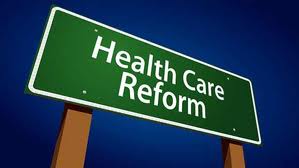 Physicians have been quick to embrace online technology personally, but on the practice and profession side, they have approached social media, blogs, email (and sometimes Internet marketing) slowly and with an understandable measure of caution.
Physicians have been quick to embrace online technology personally, but on the practice and profession side, they have approached social media, blogs, email (and sometimes Internet marketing) slowly and with an understandable measure of caution.
 Physicians have been quick to embrace online technology personally, but on the practice and profession side, they have approached social media, blogs, email (and sometimes Internet marketing) slowly and with an understandable measure of caution.
Physicians have been quick to embrace online technology personally, but on the practice and profession side, they have approached social media, blogs, email (and sometimes Internet marketing) slowly and with an understandable measure of caution.
The intersection of social media and patient interaction is a busy and sometimes confusing corner. “Online technologies present both opportunities and challenges to professionalism,” the American College of Physicians (ACP) observes. “They offer innovative ways for physicians to interact with patients and positively affect the health of communities, but the tenets of professionalism and of the patient–physician relationship should govern these interactions.
“As patients continue to turn to the Web for health care advice, physicians should maintain a professional presence and direct patients to reputable sources of information.” A new position paper from the ACP and the Federation of State Medical Boards (FSMB) offers these primary points for physician guidance:
Position 1: Use of online media can bring significant educational benefits to patients and physicians, but may also pose ethical challenges. Maintaining trust in the profession and in patient–physician relationships requires that physicians consistently apply ethical principles for preserving the relationship, confidentiality, privacy, and respect for persons to online settings and communications.
Position 2: The boundaries between professional and social spheres can blur online. Physicians should keep the two spheres separate and comport themselves professionally in both.
Position 3: E-mail or other electronic communications should only be used by physicians in an established patient–physician relationship and with patient consent. Documentation about patient care communications should be included in the patient’s medical record.
Position 4: Physicians should consider periodically “self-auditing” to assess the accuracy of information available about them on physician-ranking Web sites and other sources online.
Position 5: The reach of the Internet and online communications is far and often permanent. Physicians, trainees, and medical students should be aware that online postings may have future implications for their professional lives.
The ACP/FSMB Position Paper provides a lengthy discussion of each of these points, and is recommended reading. In addition, the following article—originally published by PhysBizTech and used here with permission—by Frank Irving, Editor, provides an excellent summary of the policy paper in this article:
Physicians advised not to ‘friend’ patients
The American College of Physicians (ACP) and the Federation of State Medical Boards (FSMB) want doctors to “pause before posting” when it comes to their social media activities. The two organizations stated their position in a policy paper during ACP’s Internal Medicine 2013 meeting in San Francisco.
The paper, published online in advance of the April 16 issue of the Annals of Internal Medicine, advises physicians on how to protect patient interests—and themselves—while applying principles of professionalism to online settings. It also addresses the public perception of physician behaviors and recommends strategies for patient-physician communications that preserve confidentiality while best utilizing new technologies.
“It is important for physicians to be aware of the implications for confidentiality and how the use of online media for non-clinical purposes impacts trust in the medical profession,” said Humayun Chaudhry, DO, MS, FACP, president and CEO of FSMB, in a prepared statement.
During a press briefing announcing the paper’s release, Chaudhry added, “Last year in research we published in JAMA with colleagues from Yale University, we were quite alarmed to learn that 92 percent of state medical boards responding to a survey said that they had had at least one case in which an online professionalism violation led to board actions such as licensure revocation.”
Chaudhry continued, “Poor judgment [in online behavior] is really no excuse, and reflects badly on the individual as well as the practice of medicine.”
David Fleming, MD, MA, FACP, who is director of the Center for Health Ethics at the University of Missouri School of Medicine, added during the press briefing, “Now we’re in the public domain. I would argue that every physician in some fashion has had an opportunity to communicate—or has, in fact, communicated – with patients [through] electronic means, perhaps without thinking of the consequences.”
Notable recommendations from ACP and FSMB include the following:
- Physicians should keep their professional and personal personas separate. Physicians should not “friend” or contact patients through personal social media.
- Physicians should not use text messaging for medical interactions even with an established patient except with extreme caution and consent by the patient.
- E-mail or other electronic communications should only be used by physicians within an established patient-physician relationship and with patient consent.
- Situations in which a physician is approached through electronic means for clinical advice in the absence of a patient-physician relationship should be handled with judgment and usually should be addressed with encouragement that the individual schedule an office visit or, in the case of an urgent matter, go to the nearest emergency department.
- Establishing a professional profile so that it “appears” first during a search—instead of on a physician ranking site—can provide some measure of control that the information read by patients prior to the initial encounter or thereafter is accurate.
- Medical trainees may inadvertently harm their future careers by not responsibly posting material or actively policing their online content. Educational programs stressing a pro-active approach to digital image (online reputation) are good forums to introduce these potential repercussions.
The paper cautions that communicating with patients using e-mail offers the potential benefits of great accessibility and immediacy of answers to non-urgent issues. However, the potential dangers are confidentiality concerns, replacement of face-to-face or phone interaction, and ambiguity or misinterpretation of digital interactions. Suggested safeguards include reserving digital communications for patients that maintain face-to-face follow-up only.
Click here to view a chart of online activities, potential benefits and dangers, and recommended safeguards for physician behavior.
“Although many healthcare facilities have policies on the uses of digital media,” the ACP observes, “education about the ethical and professional use of these tools is critical to maintaining a respectful and safe environment for patients, the public, and physicians.
“The ACP and the FSMB recognize that emerging technology and societal trends will continue to change the landscape of social media and social networking and how Web sites are used by patients and physicians will evolve over time. These guidelines are meant to be a starting point, and they will need to be modified and adapted as technology advances and best practices emerge.”
# # #
Frank Irving is responsible for editorial content on PhysBizTech, a multi-platform, online publication from the publishers of Healthcare IT News. PhysBizTech offers business and technology intelligence to small and medium-sized physician practices. The article, Physicians advised not to ‘friend’ patients,” was originally published online and is used here with permission.
(image: social media & doctors / shutterstock)








